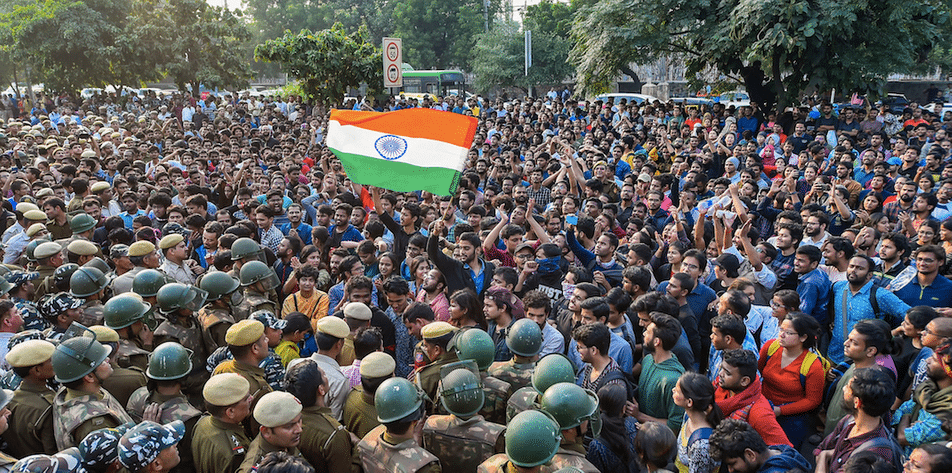All was quiet at the Jawaharlal Nehru University campus on Tuesday, a day after the massive student protests at the AICTE auditorium. The silence, however, hardly represent an end to what the students started.
Many demonstrators expressed a sense of anger, as well as despair, while discussing the current situation. Students who have been associated with the university for almost five years were as disappointed by the steep fee hike and the way the police handled the protests, as the freshers.
“I have seen this as a space for engaging in academic debates, so it’s extremely suffocating to witness the authoritarian rule now,” said Shashi, a fifth year PhD student at the School of International Studies.
A first-year history M.A. student, Ananya, spoke about her experience with college politics at the Banaras Hindu University (BHU) and how JNU held hopes of greater political participation. “I had always dream of studying at JNU. However, the idea of politics that the administration is comfortable with has changed here,” she stated.
There is no question of balking in front of the authorities, but there is a prevailing sense of doom on campus. “However, the fee hike is non-negotiable and definitely has to be declared null,” Ananya added.
JNU fee hike would forever shut the doors of the univ for the poor & underpriviliged – this also includes the children of cops who roughed up JNU students yesterday.
Jawans of @DelhiPolice, the system is shutting you out & we are fighting for ur children too! #JNUProtest pic.twitter.com/08Uvpw4BIa
— Umar Khalid (@UmarKhalidJNU) November 12, 2019
Another student added,” I had cracked the IIT entrance exam but couldn’t afford the fee. JNU had accepted me then.”hostel
JNU is witnessing a protest which looks distinctly similar to the ones that came after the 2016 sedition case detentions were made. Though there have been multiple protests regarding issues such as compulsory attendance, fund cuts in the library; they hadn’t received major media attention. Ananya believes this movement affects even more people, “That had been more against the authorities declaring people anti-national. This is different. This is about the future of almost 40% of JNU’s students.”
Another student said, “This protest is because of a direct economical impact this decision will have. It’s a battle of survival.”
The students this correspondent spoke to strongly opposed the portrayal of the protest as an act of violence perpetrated by the mainstream media. An activist said, however, that most JNU students had long stopped caring about their projected image on media.
“The protest symbolises that we are not dead yet,” commented a PhD scholar who was lathicharged along with many others on Monday.
“The time we should be utilising to focus on studies has been occupied by making posters and banners for the protest. We obviously want to get back to concentrating on academics but it’s important to fight this now,” Sai Vishwakarma, an ancient history student, said.
He added, “Incidents such as yesterday’s are impactful. Many still need to recover from their injuries,”
After a trying day outside the All India Council for Technical Education (AICTE), hope still prevails in campus discussions.
A former Rashtriya Swayamsevak Sangh (RSS) follower, Mandeep Kumar said he had undergone an ideological transformation after joining JNU. “Now I understand the manipulation of the right-wing,” said the student, pursuing a BA in Japanese language.
Students are also exasperated with the ‘no dialogues’ approach of the administration.
“When I had come to write my entrance exam here, the walls spoke to me in the form of posters. Eventually they took them off. The very sense of expression was killed there,” said a voice from those who gathered on campus.
Another said it frustrated her to continue with research in this campus.
“This is a tipping point for us. Nothing has been forgotten,” informed a research student.
Featured image credit: PTI

